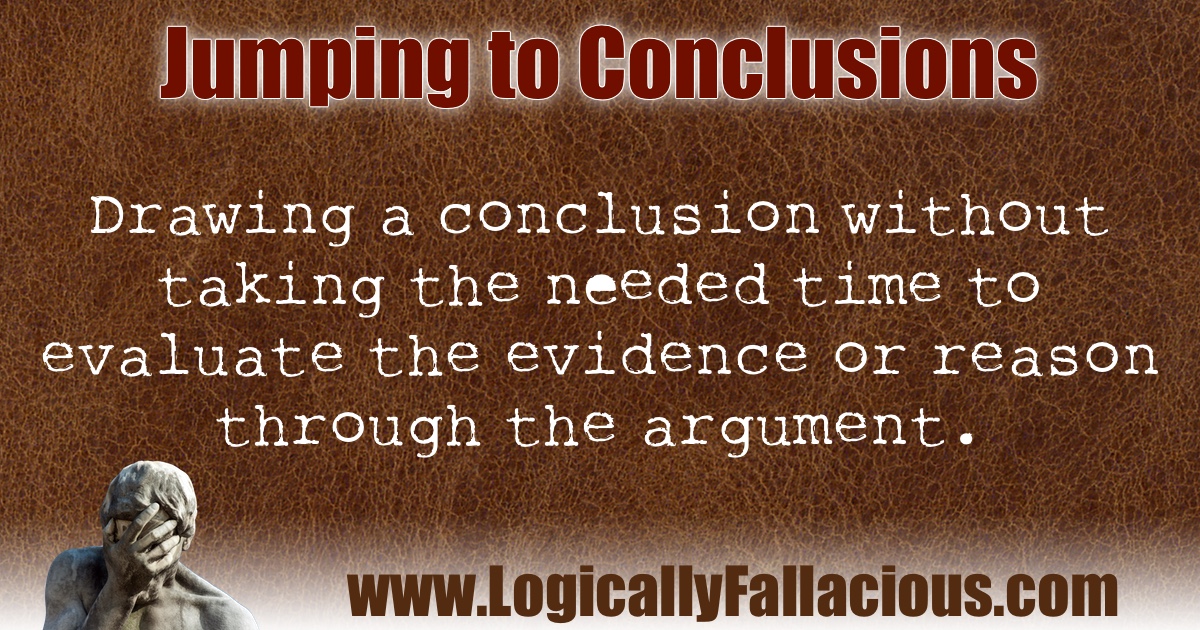(also known as: hasty conclusion, hasty decision, leaping to conclusions, specificity)
Description: Drawing a conclusion without taking the needed time to evaluate the evidence or reason through the argument.
Logical Form:
Little or no evidence is provided or reviewed.
Conclusion is made.
Example #1:
Wife: Should we buy the house?
Husband: The Realtor didn’t say anything about any problems, so I am sure it is fine. Let’s get it!
Explanation: The husband is jumping to the conclusion that the house is without problems simply because the person who gets paid to sell the house did not mention any. This is fallacious reasoning.
Example #2:
It’s getting late, and we still have to decide on the school budget. What do you say we just leave it as is and we can call it a night?
Explanation: It is not reasonable to assume the conclusion that the budget should be left where it is based on the desire to go home.
Exception: There are many times when quick decisions are required, and evidence cannot be fully examined, and in such circumstances, we need to come to the best conclusion we can with the resources we have.
Tip: If anyone gives you an unreasonable timeframe for making a decision, it is almost always an attempt to discourage you from critical thought. If you cannot have what you feel is a reasonable amount of time to come to a well-reasoned conclusion -- walk away.
